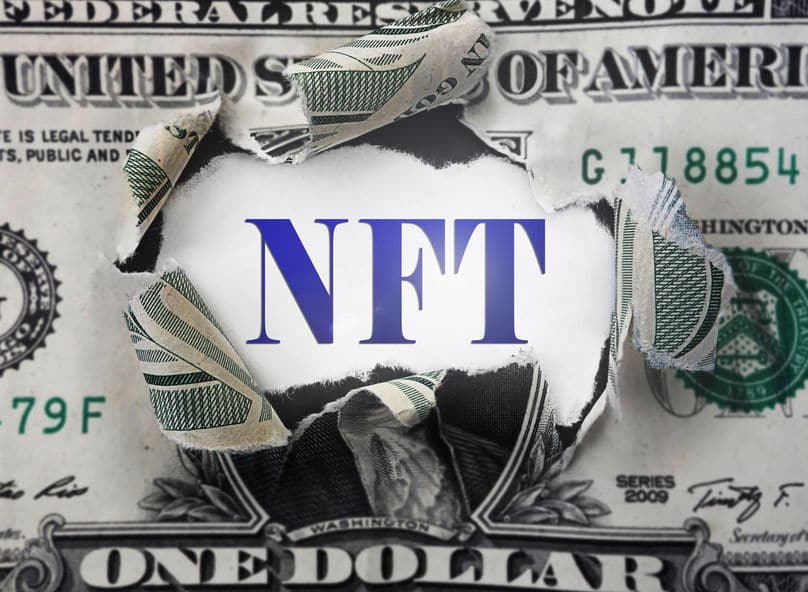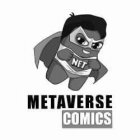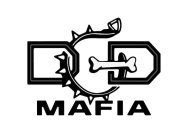NFT Trademark and Copyright Questions

Blockchain technology brought us new assets in the form of non-fungible tokens (NFTs). A non-fungible token (NFT) is a unique and non-interchangeable unit of data stored on a blockchain, which is a form of digital ledger. Digital files containing artwork, video, audio, photos, and other files can be reproduced into an NFT. By using blockchain technology the NFT’s digital ledger can be used to prove authenticity and verify/track ownership. These digital assets can be sold and traded, which is tracked on the blockchain’s digital ledger.
In this article, you will learn more about the trademark and copyright implications of this new technology and how you can protect your NFTs.
Who Owns the Copyright in the NFT?
Copyright is exclusive ownership of and the right to make use of, for a limited period of time, artistic works that are fixed in a tangible medium. “Fixed in a tangible medium” simply means that you can touch, feel, and see the artwork (for example, music that is not fixed in an mp3, CD, or digital file, or many other methods is not entitled to copyright). If I randomly whistle a song in public, I do not own the copyright to that song. However, if I take a video of myself whistling a song, I do own the copyright (as long as it’s an original of course). That over simplifies it but you get the idea.
What rights do copyright owner’s own exactly?
- the right to reproduce the copyrighted work – make copies
- the right to prepare derivative works based upon the work – create something based on the original (a Harry Potter doll or a Harry Potter spinoff book, for example)
- the right to distribute copies of the work to the public – give out the copies
- the right to perform the copyrighted work publicly – play the music I own in the park
- the right to display the copyrighted work publicly – show my artwork in an art gallery
What is important to understand is “these exclusive rights are different from the rights given to a person who merely owns a copy of the work.”
Ownership of the work does not give you the above rights. For example, if I own a painting I purchased from Cecily Brown, I cannot then make copies of that artwork and sell prints. That right belongs to Cecily Brown. However, I can sell my artwork that I purchased.
- The copyright to an NFT, without an assignment or oral authorization, belongs to the original artwork creator, not the person who purchases the NFT.
How do I get a Copyright in an NFT?
Copyright ownership belongs to the original artist. How do you get it? The only way to obtain the copyright is by transfer. Transferring the above 5 exclusive rights copyright ownership requires a signed writing transferring the rights. However, a nonexclusive right to any of the above 5 rights may be made without a signed writing.
- For exclusive rights, you’ll need a signed writing from the owner transferring rights.
- For non-exclusive rights (permission for any of the above 5 rights) you will simply need the owner to tell you it is okay (still, a signed writing is preferred).
Some NFTs come with copyright. Mintable indicates that some NFT owners may offer the copyright to the NFT purchaser.
I Sell NFTs, Do I Qualify for Trademark?
Yes! Well, most likely.
A trademark is any name, symbol, figure, letter, word, or mark adopted and used by any entity that sells goods or services to distinguish its products or services from the ones manufactured or sold by other third parties. NFTs represent goods. Thus, if you sell them you would qualify for a trademark with the brand you use to sell them.
For example, Board Ape Yacht Club sells numerous NFTs featuring a monkey and different facial expressions. Here are the trademark applications they’ve applied for:
- BORED APE YACHT CLUB – Serial No. 90739977
- BA YC BORED APE YACHT CLUB (logo) – Serial No. 90739987
- BA YC (logo) – Serial No. 90739994
- BORED APE – Serial No. 90884286
- Among others
As long as you market the NFTs under some name rather than the titles of the individual artworks themselves you likely qualify for trademark protection.
Register a Trademark for Brand Identification and Protection
If you sell NFTs under a specific business name you should register the trademark with the United States Patent and Trademark Office (USPTO). Registering a trademark with the USPTO protects you on a national level. In addition, it has international implications. The US is a large market. If you own the federal trademark in the US that means that someone, including foreign businesses looking to sell their NFTs under a similar brand to anyone in the US would be prevented from doing so based on your US trademark registration.
The cost to register could be as low as the $250 USPTO government filing fee. However, it is advised you use an attorney for the process (our cheapest flat fee is $399).
Below are some additional NFT trademark owners:
- CRYPTOPUNKS – Serial No. 90587519
- VEEFRIENDS – Serial No. 90739977
- MEEBITS – Serial No. 90596620
- AUTOGLYPHS – Serial No. 90593230
- PUDGY PENGUINS – Serial No. 97017130
Assistance from a NFT trademark attorney can help with the necessary review of a mark before spending the money on a filing fee.
Should I Trademark the Name or the Logo?
Both. It’s customary that you file your name and logo separately. For example, Twitter owns a trademark on the name “TWITTER” as well as the logo of the blue bird. This way it can use them interchangeably and in any combination.
Filing separately is the proper way to file as it protects:
- The word mark, which protects the name in any font, capitalization, and phonetics. It’s a broad protection for the literal element.
- The design element, which prevents similar uses of the design characteristics of your logo.
Review your use of your brand name to determine whether or not you have a separable design element that can be protected. If it’s simply the words in a specific font, you probably don’t need to file a design logo.
Some Trademark Logo Examples of NFT Trademarks Already Filed
Yuga Labs LLC – BORED APE YACHT CLUB Logo (Serial No. 90739987) 
De Anda, Felipe D – METAVERSE COMICS Logo (Serial No. 97094069) 
DGD Labs, LLC – DGD MAFIA Logo (Serial No. 97177755) 
Candlish, Wayne – BALLERWHALE Logo (Serial No. 97138760) 
Nfinita Inc. DBA Metagood – ONCHAIN MONKEY Logo (Serial No. 97120663) 
Again, the key to determining whether you need to file a logo is whether there is some design element you want to protect.
Where Do NFT Rights Go From Here
Currently most of the NFTs you purchase are variations on an original. In other words, they typically feature slightly different artwork with an overall theme. This can pose a problem to offering to sell the copyright, as one of the rights you obtain is to create a derivative (create something that is based or looks similar to the original). However, copyright in the artwork is also quite valuable.
Therefore NFT sales in the future might include:
- More expensive NFTs if the copyright is included
- Royalty licensing agreements for future sales to the original creator
- Commercial use of NFTs that are purchased
- Copyright non-exclusive assignment of any of the 5 individual rights
Essentially the rights to the copyright on the original work can be assigned or licensed in NFTs making the purchase of the NFT much more valuable.